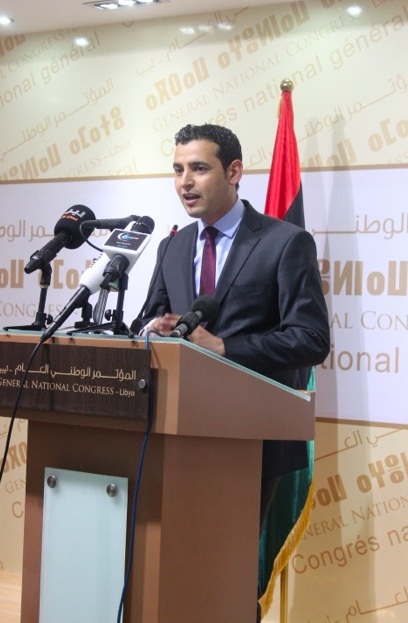By Lorianne Updike Toler.

Title: HNEC Being Re-organized for Constitution Committee Elections
Tripoli, 11 February 2013
Enabling legislation to reconstitute the Election Commission to . . .[restrict]run the nationwide vote for the Constitutional Committee, is to be drafted by a committee of three.
Congress spokesman Omar Hemidan told the Libya Herald today that the High National Election Commission is helping Congress President Mohamed Magarief select the trio that will work on the proposed legislation.
A timeline for the electoral law or the hosting of elections has not been specified. Mohammed Abdallah has suggested that an electoral law may be drafted within 60 days and elections hosted in six months, placing the vote immediately after Ramadan. Such a timetable presents difficulties in that opportunities for campaigning and voter education during Ramadan would be extremely limited, and reduce training for polling staff. Additionally, adopting a firm deadline for elections before the passage of the law could, if the electoral law is delayed, perhaps going through several revisions, as happened last time, significantly limit the time available for campaigning.
A petition drafted by Azza Maghur in consultation with international experts and circulated to the GNC last Thursday recommends instead a 90-day timeframe for drafting the electoral law, with elections 150 days thereafter, placing elections in October.
Whatever timeline specified for the drafting of an electoral law, elections experts recommend that the deadlines for the electoral law and elections be kept separate and sequential.
“It is important that there is a comprehensive legal framework in place before election preparations begin,” said Ian Smith, Country Director for the International Foundation for Electoral Systems (IFES), an international non-government organisation supporting elections in new and evolving democracies.
“The new election law for an elected Constituent Assembly will have to address important issues such as constituency boundaries, the electoral system, measures to ensure the inclusion of women and minorities, participation of Libyans abroad, criteria for candidate nomination and the role of political parties, if any.”
After the passage of an electoral law, there should be adequate time made available for vetting and nominating candidates, campaigning and civic education. Such will allow the public to make informed decisions about the individuals who will write their constitution that will (hopefully) last 50 to100 years.
“It is essential that there is enough time for campaigning and voter education so that voters understand exactly what they are voting for and where the candidates stand with respect to constitutional matters that will be the basis for all laws, rights and duties of its citizens and the structure of government,” said Smith.
At the last elections, candidates were given only three weeks in which to campaign. Despite their general success, almost all agree that the shortened time for campaigning produced voters who were less informed than they should have been.
The potential problems presented by the options for an election timetable highlight the need for an overall strategic design for Libya’s constitutional process that thoughtfully considers the best international, comparative, and historical expertise and local challenges. Design of constitutional process will be discussed in the next editorial in this series.
————–
This is the twelfth editorial in a series on constitutionalism authored by constitutional legal historian Lorianne Updike Toler, founding president of The Constitutional Sources Project and Lorianne Updike Toler Consulting. [/restrict]









